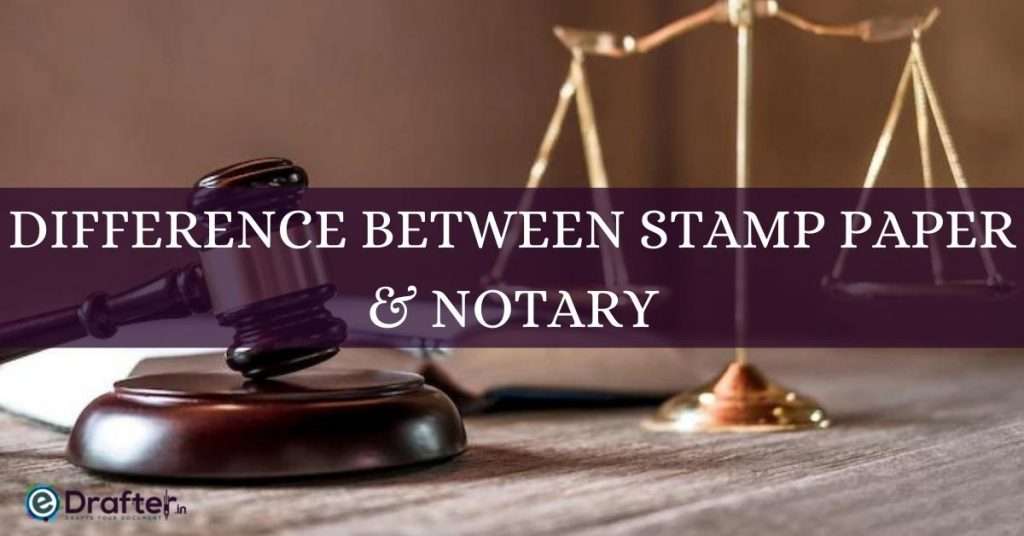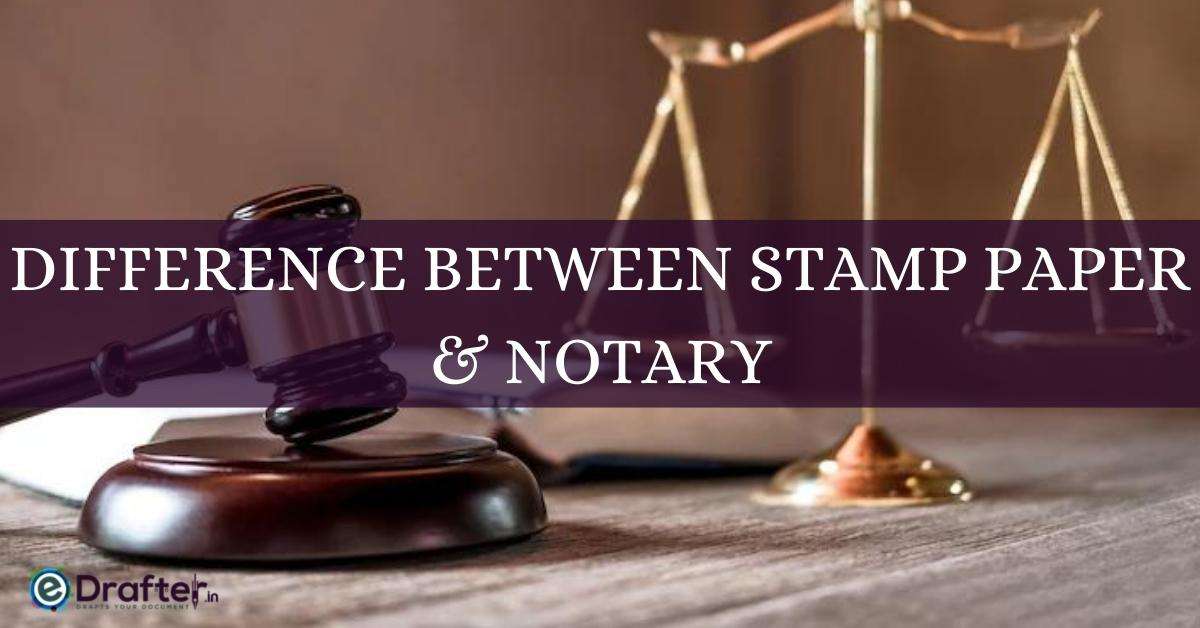
Table Of Content
- Stamp Paper Vs Notary
- What is a Stamp Paper?
- What is a Notary?
- Conclusion
- Frequently Asked Questions (FAQs)
In the 16th Century Spain and the Netherlands started this hierarchy of Stamp Paper which the British Empire adopted, and compiled it into the Stamps Act in 1765. At that time it was the only source of income so all the colonies who were under the Empire including India were ordered to implement it.
Stamp Paper is a major thing that an individual should have knowledge about as in every step of life at least one or two times you will need a Stamp paper.
Stamp Paper Vs Notary
| Basis Of Distinction | Stamp Paper | Notary |
| Meaning | A piece of paper on which the Stamp value is printed. These Stamp Papers typically have a fixed value such as 10 rupees, 20 rupees and so on. | Notary is said to be an unbiased witness to the signing of a legal document. It ensures that the documents are signed and well drafted. |
| Source of Income for government | It is the largest source of income. | No income is generated. |
| Types | Judicial Stamp paper and Non-Judicial Stamp paper. | There are no types of notaries. |
| Purpose | It serves as a proof between two parties for any deals made between them such as buying and selling a property. | To verify the authenticity of any document. |
What is a Stamp Paper?
In simple words, Stamp Paper is a piece of paper with the stamp value imprinted on it. These Stamp Papers are normally provided by the government and have a predetermined value, such as 10, 20, and so on. Each value is utilized in accordance with the requirement and the stamp duty set by the State Government. The largest source of revenue for the Indian government is thought to be stamp paper. The denomination of stamps with regard to the article varies from state to state because stamps are not centralized; instead, they are state-based.
Also Read, How to get stamp paper online?
Judicial Stamp Paper
Judicial Stamp Papers are those that the judge uses to directly deliver verdicts in court. Papers used in the administration of justice. Under the Court Fees Act of 1870, stamp duty on judicial stamp paper is paid.
Non-Judicial Stamp Paper
Non-Judicial Stamp Papers are those used solely for the execution of documents.Commercial contracts, powers of attorney, property transfers, declarations, and other documents are among the uses for non-judicial stamp papers. The payment of stamp duty on non-judicial stamp paper is governed by the Indian Stamp Act of 1899. to know the difference between non-judicial stamp paper and e-stamp paper, you can go through our blog post.
What is a Notary?
A notary is a legally appointed representative who acts as an unbiased witness to the signing of a legal document. Real estate deeds, affidavits, wills, trusts, powers of attorney, bills of sale, and other legal transactional documents are among the signings that typically call for a notary’s services. Notary Public ensures that legal papers are properly drafted and signed, the notary profession serves as the universally accepted, impartial third party. This is significant because it gives an extra degree of security to a crucial transaction in a world full of false people looking to take advantage of the next unsuspecting victim that passes by and the notary public has the power to stop it.
Also Read, Should Loan Agreement Be On Stamp Paper?
Does a notary have to sign and stamp?
The people who drafted public and legal documents, notaries have become a mainstay in the majority of legal systems. Writing all of these documents resulted in an increase in the notary public’s power. There are times when people actually think about this “Do notaries have to sign and stamp?”, “Can a notary use a stamp instead of a signature”. The answer to this is ‘Yes’ it is necessary to pay attention to both the signature and stamp in a notary. The notary’s signature is crucial because if the documents are not authenticated by the notary and bear his or her seal, they lose their legal force. Legal documents can be regulated and double-checked by notaries to verify their legitimacy and conformity.
Is a document legal without the notary stamp?
One of the most crucial components of offering a notarial service is signing a document. Public notaries are required by law in each of the states to affix their distinctive stamp to the document in order to complete and authenticate the service. Without stamping the document it is useless to submit it as it automatically becomes null and void. All the hard work goes in vain if the documents aren’t stamped by the notary public.
Also Read, Notarized Rent Agreement OR Registered Rent Agreement?
Conclusion
Notary and Stamp paper do have a thing in common and that is they both make the documents valid. Notary serves the purpose of protecting the customers from frauds and stamp paper makes the words written on it legal. It is simpler to verify a document that has been notarized and stamped.
Frequently Asked Questions (FAQs)
A notary serves as an unbiased witness when signing legal documents and is a publicly appointed professional responsible with determining the veracity of documents. Notarization of legal documents helps to prevent fraud and ensure that transactions are carried out correctly.
As there is no such compulsion on notarizing the Stamp Paper but when you get your Stamp paper notarized then the value of the papers is high in short term that after notarizing the stamp paper no further procedures need to be done the documents itself become more valid and just need to be submitted directly.
There is no such word as notary paper. It is the Stamp Paper on the notary public puts the signatures and seal to make it more valid. Notarizing the documents signifies that the one signing the documents is you. A notary public appointed by the state or federal government performs notarization. Additionally, he has the authority to administer an affidavit and the oath.


